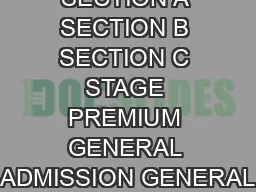PPT-Writing Section
Author : luanne-stotts | Published Date : 2016-08-06
1 Writing Intro 2 Prewrite 3 Draft 4 Revision Today Lesson 4a Revision Essential Question How can I revise my writing to make it better Learning Outcomes
Presentation Embed Code
Download Presentation
Download Presentation The PPT/PDF document "Writing Section" is the property of its rightful owner. Permission is granted to download and print the materials on this website for personal, non-commercial use only, and to display it on your personal computer provided you do not modify the materials and that you retain all copyright notices contained in the materials. By downloading content from our website, you accept the terms of this agreement.
Writing Section: Transcript
Download Rules Of Document
"Writing Section"The content belongs to its owner. You may download and print it for personal use, without modification, and keep all copyright notices. By downloading, you agree to these terms.
Related Documents




![[DOWNLOAD] - Practice Makes Perfect Mastering Writing (Practice Makes Perfect Series)](https://thumbs.docslides.com/901385/download-practice-makes-perfect-mastering-writing-practice-makes-perfect-series.jpg)
![[DOWNLOAD] - The Teacher\'s Big Book of Graphic Organizers: 100 Reproducible Organizers](https://thumbs.docslides.com/901411/download-the-teacher-s-big-book-of-graphic-organizers-100-reproducible-organizers-that-help-kids-with-reading-writing-and-the-co.jpg)
![[EPUB] - 180 Days of Writing for Second Grade - An Easy-to-Use Second Grade Writing Workbook](https://thumbs.docslides.com/901424/epub-180-days-of-writing-for-second-grade-an-easy-to-use-second-grade-writing-workbook-to-practice-and-improve-writing-skills.jpg)
![[EBOOK] - Teaching Writing in Kindergarten: A Structured Approach to Daily Writing That](https://thumbs.docslides.com/901683/ebook-teaching-writing-in-kindergarten-a-structured-approach-to-daily-writing-that-helps-every-child-become-a-confident-capabl.jpg)
![[READ] - Writing a Successful College Application Essay (Barron\'s Writing a Successful](https://thumbs.docslides.com/901982/read-writing-a-successful-college-application-essay-barron-s-writing-a-successful-college-application-essay.jpg)
![[EPUB] - On Writing the College Application Essay, 25th Anniversary Edition: The Key](https://thumbs.docslides.com/902217/epub-on-writing-the-college-application-essay-25th-anniversary-edition-the-key-to-acceptance-at-the-college-of-your-choice.jpg)
![[READ] - Internships in Psychology: The APAGS Workbook for Writing Successful Applications](https://thumbs.docslides.com/902728/read-internships-in-psychology-the-apags-workbook-for-writing-successful-applications-and-finding-the-right-fit.jpg)
![[DOWNLOAD] - GMAT All the Verbal: The definitive guide to the verbal section of the GMAT](https://thumbs.docslides.com/905011/download-gmat-all-the-verbal-the-definitive-guide-to-the-verbal-section-of-the-gmat-manhattan-prep-gmat-strategy-guides.jpg)
![[DOWNLOAD] - The Creative Writing Student\'s Handbook (Creative Writing Matters Guides)](https://thumbs.docslides.com/905252/download-the-creative-writing-student-s-handbook-creative-writing-matters-guides.jpg)
![[READ] - The Only Writing Series You\'ll Ever Need - Grant Writing: A Complete Resource](https://thumbs.docslides.com/905612/read-the-only-writing-series-you-ll-ever-need-grant-writing-a-complete-resource-for-proposal-writers.jpg)
![[EBOOK] - Ecologies of Writing Programs: Program Profiles in Context (Writing Program](https://thumbs.docslides.com/906283/ebook-ecologies-of-writing-programs-program-profiles-in-context-writing-program-adminstration.jpg)